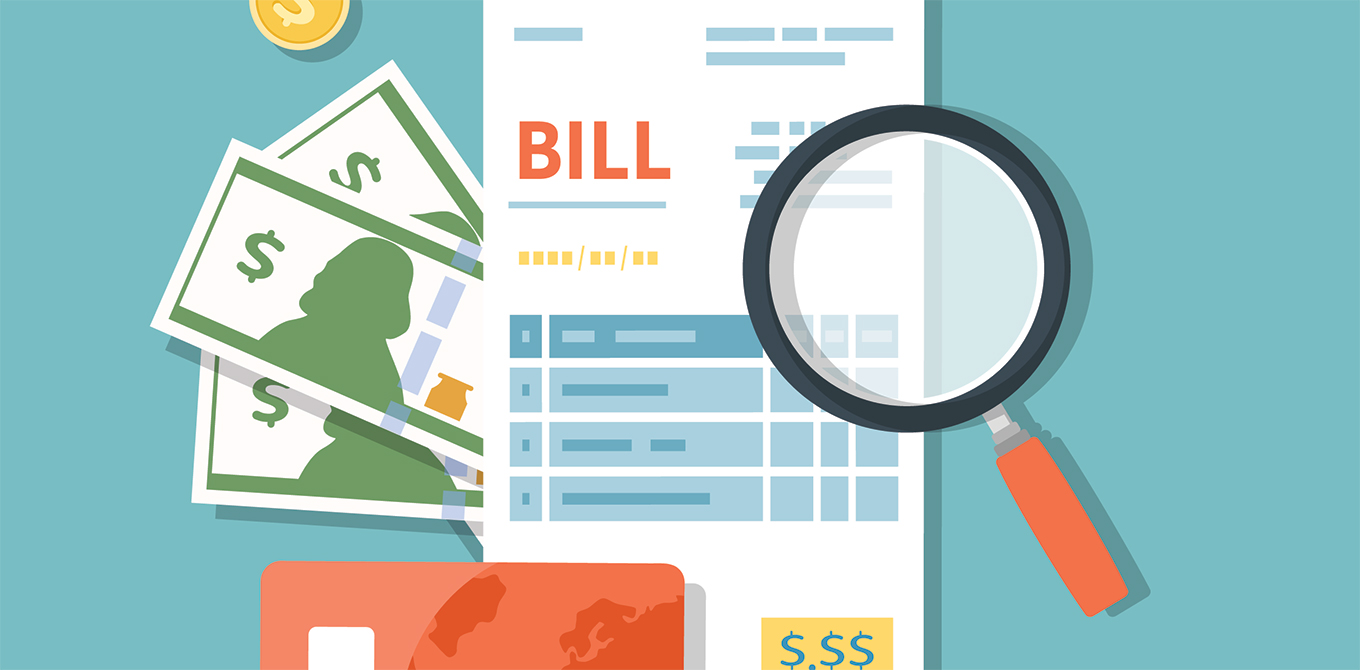Should you pay down debt or save?
Paying off debt and saving money for emergencies are both necessary to achieve good financial health. If you have a limited budget, you might be wondering which one you should tackle first. Understanding the benefits of both can help you create an individualized plan for mastering your money and help you reach your financial goals.
Pros of paying off debt
There are several good reasons to pay off debt as quickly as possible:
- You can reduce the amount of interest paid over time. This is particularly helpful if you have high-interest credit card debt.
- It can help improve your credit score.
- Once your debt is paid, you can focus fully on saving and other financial goals.
- Getting rid of debt can remove an emotional and/or mental burden.
When you spend $5,000 on a credit card with 17% interest, and you only make the minimum payment every month, you'll spend much more than just that original purchase price plus $850 (17%). In fact, over the course of your repayment, assuming a 4% minimum payment, you'll spend over 10 years paying off that debt to the tune of $2,627 in interest.
Carrying debt is a financial burden, but it can also drag down your credit score and your peace of mind. If you have other financial goals on the horizon, especially ones that will require good credit like purchasing a home, then it might be prudent to focus on paying off your debt first.
Some people prefer to tackle their highest interest accounts first, while others prefer to start with the smallest balances (to eliminate them faster and feel more productive). Create a couple different payoff plans to evaluate which approach will work best for you — and then stick with it. Once you pay off your debt, you can take those monthly payments and turn them toward a savings account.
Pros of prioritizing savings
On the other side of the equation, there are several advantages to getting a head start on saving:
- The sooner you begin, the more time you have to take advantage of compounding interest.
- You can work toward your financial goals on your own timeline, versus having to wait until your debt is repaid.
- Having some easily accessible savings can help you avoid accumulating new debt if an unexpected expense pops up.
Perhaps the best reason to apply money-saving tips to your financial life as early as possible is compound interest. Compound interest refers to the interest earned on your interest, either in a savings account, money market account, CD, or investment account. The more time your money has to compound, the more it can grow.
Waiting even five or 10 years to start saving can make a significant difference in how much you'll accumulate over time. For example, say you begin contributing $5,500 a year into an individual retirement account at age 25. If you continue to save that same amount until age 65, earning a seven percent return, you'd have $1.17 million saved for retirement. However, if you wait until age 35 to start, your retirement nest egg would grow to about $556,000.
Getting a head start on saving can also help you achieve other long-term goals, such as buying a home, traveling, or jump starting your kids' college fund.
Lastly, having some money in savings can provide a financial safety net. For example, consider how you'd handle an unexpected car repair or a job loss. Without emergency savings in place, you may have to use a high-interest credit card or loan to fill the gap. That could be counter-intuitive to your paying off debt plan if you're adding to your debt in the process.
Can you pay off debt and save?
It is possible to pay off debt while also saving money, but it requires strategy, planning, and streamlining your spending habits.
The first step is to review your budget to see how much money you're paying toward debt each month. Is there a way to make your debt less expensive so you can pay it off more efficiently? Transferring high-interest credit card debt to a new card with a 0% APR or refinancing student loans, for example, could reduce interest charges and help you pay more toward the balance owed.
Next, see if it's possible to free up money by cutting back on certain expenses or eliminating them altogether.
With the money you squeeze out of your budget, whatever the amount, decide how much of it should go to debt and how much to saving. For example, if you have an extra $300 to work with and a goal of creating an emergency fund, you might put $200 toward saving and $100 toward debt, which will give you a savings cushion of $2,400 at the end of the year (while still paying off an extra $1,200 in debt). Or maybe you have a high-interest credit card, which uses the idea of compound interest against you, so you put $250 each month toward paying it off, and the remaining $50 goes into savings. Whatever you decide, putting your money to work will pave the way for your financial freedom.
The bottom line
Carrying debt over the long term isn't ideal, since it can cost you more money in interest and hinder your progress toward your financial goals. At the same time, you can't afford to wait to save either. When deciding whether to pay off debt or save money, the best approach may be a balanced one that includes both.




